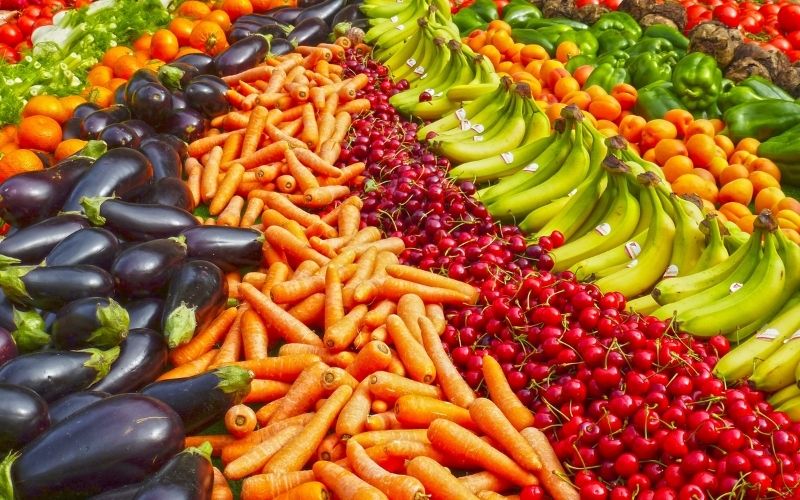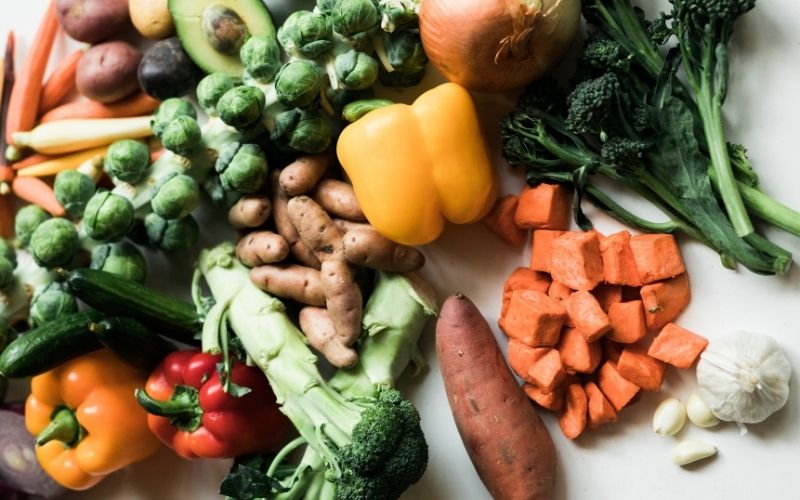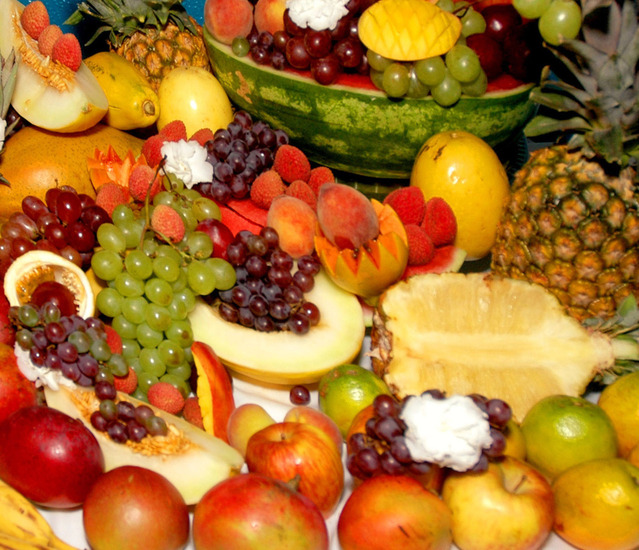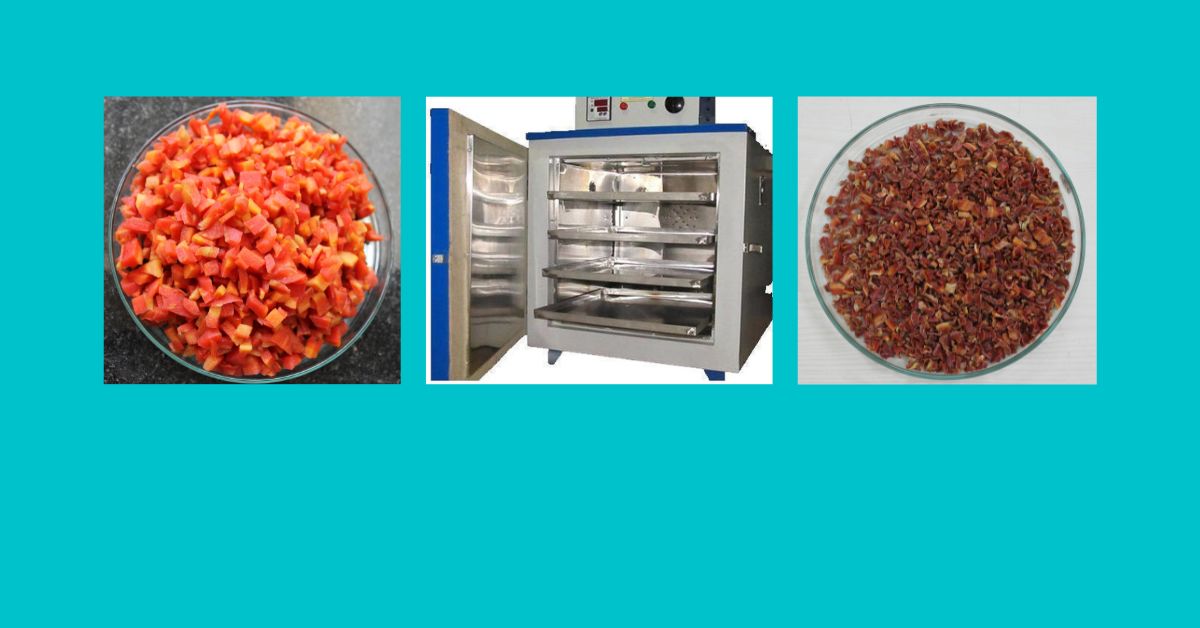Horticulture deals with garden crops such as fruits, vegetables, nuts, culinary herbs and spices, beverage crops, medicinal, aromatic plants as well as ornamental plants.
The important distinction between fruits and vegetables has come to be made on an usage basis. The plant items which are generally eaten with main course of a meal are termed as vegetables, while those eaten as dessert are termed as fruits.
Spices are aromatic or pungent plant parts (fruit, leaves, seed, root, bark, berry, bud, flower or vegetable) used to flavoring food. Spices can be used for coloring foods or as a preserving agent in food.
Some examples of spice crops are cinnamon, cassia, nutmeg, fennel, mustard, black pepper, cloves, saffron, turmeric, ginger, chili powder, curry powder, fenugreek etc.
A condiment is a spice, sauce, or spice mixture that is mainly added to different food dishes to impart a specific flavor, for improving the flavor, or in some countries, to supplement the dish.
Condiments are mainly added to the food immediately before consumption. Examples of condiments are soy sauce, ketchup, Barbecue sauce, compound butter, teriyaki sauce, marmite, mayonnaise etc.
What are characteristics and properties of horticultural crops important for processing?

Processing of fruits and vegetables helps to reduce post harvest losses in horticultural crops. It also provide considerable returns to processors by selling processed products during off-season.
Knowledge of characteristics and properties of horticultural crops from the point of processing is necessary with respect to following points.
Some characteristics and and properties of horticultural crops important for processing
- Fruit firmness: Harvested fruits should have proper firmness in order to make some processed products. Example: For making pickle, firm mango fruits should selected.
- Fruit/vegetable maturity: Maturity of fruits/vegetables is another important characteristics that should be consider while processing. Example: For making jam/jellies, fruits should show specific maturity.
- TSS/Acidity of fruits: Total soluble solids and titrable acidity can be considered under the section of maturity of fruits but still having considerable effect if thought separately. Example: Jam/jelly or pickle making is greatly dependent upon these properties.
- Peel thickness: This is another point which can be consider at specific stage during processing of fruits and vegetables. Example: Peel thickness may be important for deciding time of Blanching fruits/vegetables.
- Shelf life: Though not directly related to processing, shelf life of particular fruit/vegetable variety may prove it good for table purpose.
- Colour: Colour is a quality attribute of food products responsible for consumer acceptability. In case of some fruits/vegetables, stability of natural colorants such as carotenoids and anthocyanins, which also possess health promoting properties may tested during processing or after developing the processed product.
- Cultivar: Cultivar of fruits/vegetables is important in some cases during processing for producing good quality product. Different cultivars differ in size, shape, colour and chemical composition. Though attractive appearance and colour are important characteristics for using fruits for table purpose, chemical composition may consider for specific processing. . Example: For making processed juice, those fruit varieties are useful which having more juice and less stone part. Another example may quoted for ginger processing where the variety having more fiber content may not suitable for making ginger powder. In context of mango fruit, use of different cultivars of commercial mango for processing is discussed below.
- Alphonso (Hapus) – Good for pulping and canning purpose
- Bangalora (Totapuri) – widely used for processing
- Banganapalli (Safeda, Baneshan) – Good for canning
- Kesar – Ideal for pulping and juice concentrates
- Amrapali – Flesh is fibreless
- Sindhu- Fibreless, high pulp to stone ratio, very thin and small stone

In addition to above characteristics, some mechanical properties may consider for processing fruits/vegetables.
Mechanical properties: Mechanical properties such as hardness of fruits may considered important during specific unit operation. During handling or washing in mechanical washers before processing, fruits may subject to considerable impact. Knowledge of mechanical properties such as surface hardness, pulp firmness is therefore important to consider.
- The extent of bruising damage during handling should be observe if there is time lag between processing operations.
- If fruits/vegetables are introducing to boiling or blanching, changes in surface hardness, pulp firmness may be observed.
- Fruit flesh firmness may also affect dicing of mango fruit. Example: Suitable flesh hardness is required for making small cubes by cutting fruit/ vegetables.
The final quality of product may also inspect for different cultivars for these parameters.





Informative and useful post.
Very Informative